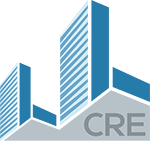Did You Know? The Difference Between SBA 7(a) and SBA 504 Loans
Do you need funding for your small business? SBA 7(a) and SBA 504 are two of the most popular financing options for small businesses.
Navigating small business loans? Understand the similarities and differences between SBA 7(a) and 504 loan programs to make an informed decision tailored to your business needs. Here’s a brief guide on the two types of loans:
SBA 7(a) Loans: Versatility and Flexibility
What Can You Use It For?
Acquiring, refinancing, or improving real estate and buildings
Short- and long-term working capital
Purchasing machinery, equipment, furniture, fixtures, and supplies
Refinancing current business debt
Changes of ownership (complete or partial)
Eligibility Criteria:
To qualify, your business must:
Be an operating business operating for profit in the U.S.
Meet SBA size requirements
Not fall under ineligible business categories
Demonstrate creditworthiness and an ability to repay the loan
Loan Terms:
Borrowing Maximum: Up to $5 million
Repayment Terms: Up to 10 years for most loans, up to 25 years for real estate purchase or construction
Maximum Interest Rates: Vary based on loan type
Guarantee Fee: 2% to 3.5%, based on the loan amount
Advantages:
Higher borrowing limits
Lower interest rates
Longer repayment terms
Flexibility in use
Downsides:
Longer processing time (around 45 days on average)
Collateral and credit score requirements
Other 7(a) Loan Options:
7(a) Small Loans: Limited to $350,000
SBAExpress: Streamlined application process for loans up to $350,000
Export Express and Working Capital Loans: Designed for export businesses
SBA 504 Loans: Fixed Assets and Real Estate
Structure:
Bank loan (50%)
Certified Development Company (CDC) loan (40%)
Borrower down payment (10%)
Eligibility Criteria:
Similar to 7(a) loans, with specific equity requirements for new businesses and special purpose properties.
Loan Terms:
Maximum Amount: Up to $5.5 million for certain projects
Minimum Credit Score: No specified minimum
Down Payment: Typically 10%
Fees: Around 3% of the 504 part of the loan
Interest: Fixed-rate tied to Treasury issues
Terms: 10, 20, or 25 years
Main Features:
Used for buying commercial real estate, large equipment, and improvements
Not for working capital or debt consolidation
Pros:
Fixed interest rates
Lower down payment
Longer terms
Cons:
Longer processing time
Specific use limitations
Which One Should You Choose?
Consider SBA 7(a) if:
You need versatile financing.
Fast funding is not your top priority.
You meet the collateral and credit score requirements.
Consider SBA 504 if:
You're investing in fixed assets or real estate.
Lower down payment is crucial.
You can wait for a longer processing time.
In conclusion, both 7(a) and 504 loans offer unique benefits, catering to different business needs. Assess your business requirements, financial situation, and timeline to make an informed decision.
Our team specializes in navigating the SBA loan process for our small business clients. If you’re a small business looking to purchase property through an SBA loan and require guidance, contact us at 415 988 9719 or email us at team@ll-cre.com
Sources:
https://www.sba.gov/funding-programs/loans
https://www.investopedia.com/what-is-a-sba-504-loan-7551278
https://money.usnews.com/loans/small-business-loans/articles/how-does-an-sba-7a-loan-work
https://resources.liveoakbank.com/blog/sba-504-loan-basics-everything-you-need-to-know
Follow LL CRE on LinkedIn to Receive the News, Listings, and Guides on Commercial Real Estate
LL CRE provides commercial real estate investment services for the San Francisco Bay Area. Are you looking to sell your property? Want to know the value of your assets in today’s market?
Take advantage of our 60+ years of market knowledge and obtain a free broker opinion of value from us.


